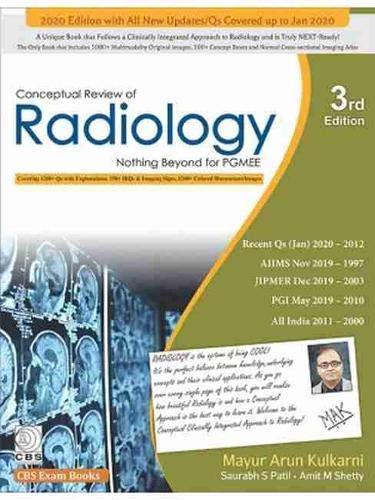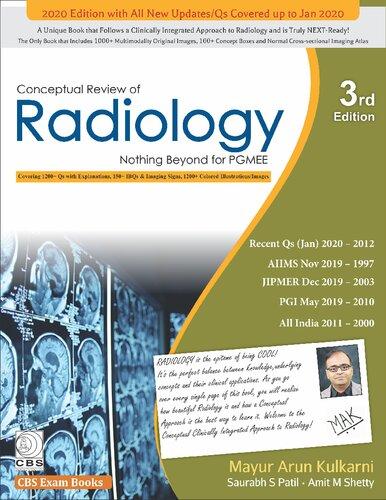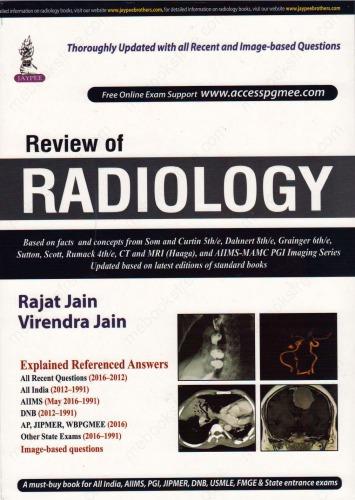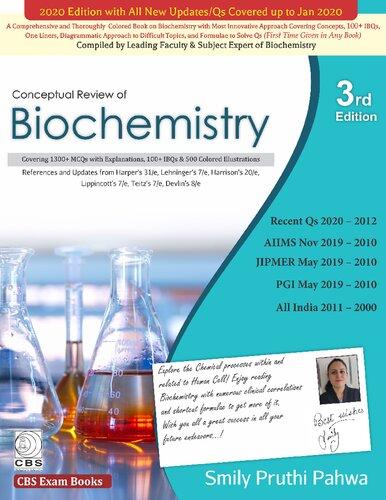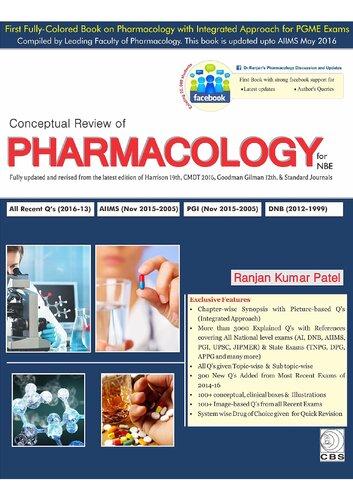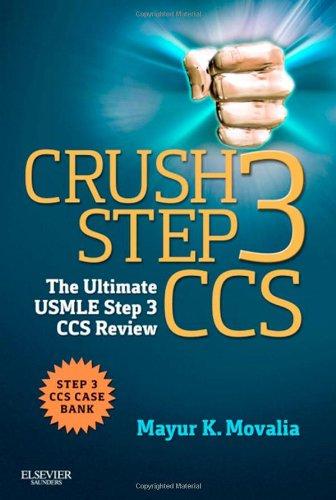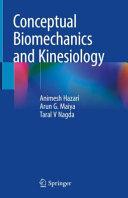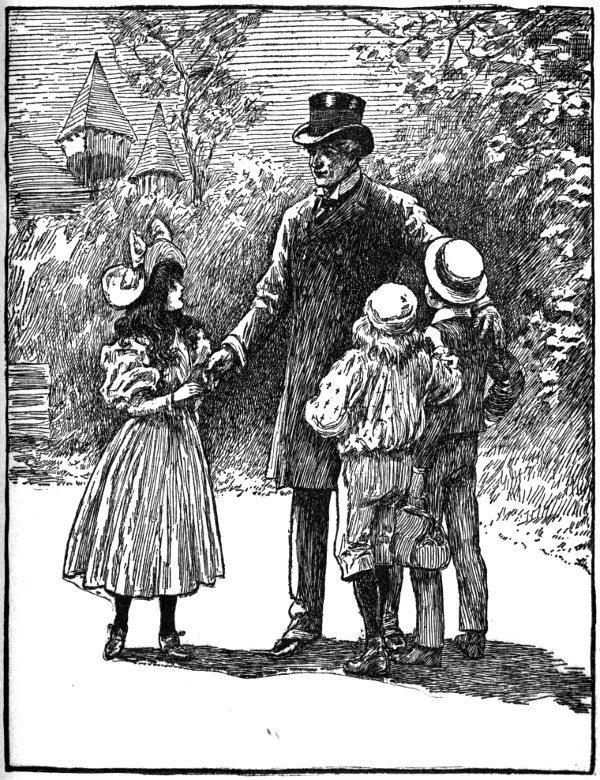Random
documents with unrelated content Scribd suggests to you:
Before they entered the Court of Honor Meg stopped them both. She was palpitating with excitement.
“Robin,” she said, “let us make him shut his eyes. Then you can take one of his hands and I can take the other, and we will lead him. And when we have taken him to the most heavenly place, he shall look—suddenly!”
“I should like that,” said Ben, tremulous with anticipation.
“All right,” said Robin.
By this time it was as if they had been friends all their lives. They knew each other. They had not ceased talking a moment since they set out, but it had not been about the Fair. Meg had decided that nothing should be described beforehand; that all the entrancement of beauty should burst upon Ben’s hungry soul, as Paradise bursts upon translated spirits.
“I don’t want it to be gradual,” she said, anxiously. “I want it to be sudden! It can be gradual after.”
She was an artist and an epicure in embryo, this child. She tasted her joys with a delicate palate, and lost no flavor of them. The rapture of yesterday was intensified
ten-fold to-day, because she felt it throbbing anew in this frail body beside her, in which Nature had imprisoned a soul as full of longings as her own, but not so full of power.
They took Ben by either hand, and led him with the greatest care. He shut his eyes tight, and walked between them. People who glanced at them smiled, recognizing the time-honored and familiar child trick. They did not know that this time it was something more than that.
“The trouble is,” Meg said in a low voice to Robin, “I don’t know which is the most heavenly place to stand. Sometimes I think it is at one end, and sometimes at the other, and sometimes at the side.”
They led their charge for some minutes indefinitely. Sometimes they paused and looked about them, speaking in undertones. Ben was rigidly faithful, and kept his eyes shut. As they hesitated for a moment near one of the buildings, a man who was descending the steps looked in their direction, and his look was one of recognition. It was the man who had watched them the day before, and he paused upon the steps, interested again, and conscious of being curious.
“What are they going to do?” he said to himself. “They are going to do something. Where did they pick up the other one—poor little chap!”
Meg had been looking very thoughtful during that moment of hesitancy. She spoke, and he was near enough to hear her.
“He shall open them where he can hear the water splashing in the fountain,” she said. “I think that’s the
best.”
It seemed that Robin thought so, too. They turned and took their way to the end of the Court, where the dome lifted itself, wonderful, against the sky, and a splendor of rushing water, from which magnificent sea-monsters rose, stood grand before.
Their man followed them. He had had a bad night, and had come out into a dark world. The streams of pleasure-seekers, the gayly fluttering flags, the exhilaration in the very air seemed to make his world blacker and more empty. A year before he had planned to see this wonder, with the one soul on earth who would have been most thrilled, and who would have made him most thrill, to its deepest and highest meaning. Green grass and summer roses were waving over the earth that had shut in all dreams like these, for him. As he wandered about, he had told himself that he had been mad to come and see it all, so alone. Sometimes he turned away from the crowd, and sat in some quiet corner of palace or fairy garden; and it was because he was forced to do it, for it was at times when he was in no condition to be looked at by careless passers-by.
He had never been particularly fond of children; but somehow these two waifs, with their alert faces and odd independence, had wakened his interest. He was conscious of rather wanting to know where they had come from and what they would do next. The bit of the story of the Genius of the Palace of the Sea had attracted him. He had learned to love stories from the one who should have seen with him the Enchanted City. She had been a story lover, and full of fancies.
He followed the trio to the end of the great Court. When they reached there, three pairs of cheeks were flushed, and the eyes that were open were glowing. Meg and Robin chose a spot of ground, and stopped.
“Now,” said Meg, “open them—suddenly!”
The boy opened them. The man saw the look that flashed into his face. It was a strange, quivering look. Palaces, which seemed of pure marble, surrounded him. He had never even dreamed of palaces. White stairways rose from the lagoon, leading to fair, open portals the wondering world passed through to splendors held within. A great statue of gold towered noble and marvellous, with uplifted arms holding high the emblems of its spirit and power, and at the end of this vista, through the archway, and between the line of columns, bearing statues poised against the background of sky, he caught glimpses of the lake’s scintillating blue.
He uttered a weird little sound. It was part exclamation, and a bit of a laugh, cut short by something like a nervous sob, which did not know what to do with itself.
“Oh!” he said. And then, “Oh!” again. And then “I I don’t know what it’s—like!” And he cleared his throat and stared, and Meg saw his narrow chest heave up and down.
“It isn’t like anything, but—but something we’ve dreamed of, perhaps,” said Meg, gazing in ecstasy with him.
“No—no!” answered Ben. “But I’ve never dreamed like it.”
Meg put her hand on his shoulder.
“But you will now,” she said. “You will now.”
And their man had been near enough to hear, and he came to them.
“Good morning,” he said. “You’re having another day of it, I see.”
Meg and Robin looked up at him, radiant. They were both in good enough mood to make friends. They felt friends with everybody.
“Good morning,” they answered; and Robin added, “We’re going to come every day as long as we can make our money last.”
“That’s a good enough idea,” said their man. “Where are your father and mother?”
Meg lifted her solemn, black-lashed eyes to his. She was noticing again about the dreary look in his face.
“They died nearly four years ago,” she answered, for Robin.
“Who is with you?” asked the man, meeting her questioning gaze with a feeling that her great eyes were oddly thoughtful for a child’s, and that there was a look in them he had seen before in a pair of eyes closed a year ago. It gave him an almost startled feeling.
“Nobody is with us,” Meg said, “except Ben.”
“You came alone?” said the man.
“Yes.”
He looked at her for a moment in silence, and then turned away and looked across the Court to where the lake gleamed through the colonnade.
“So did I,” he said, reflectively. “So did I. Quite alone.”
Meg and Robin glanced at each other.
“Yesterday Rob and I came by ourselves,” said Meg next, and she said it gently. “But we were not lonely; and to-day we have Ben.”
The man turned his eyes on the boy.
“You’re Ben, are you?” he said.
“Yes,” Ben answered. “And but for them I couldn’t never have seen it—never!”
“Why?” the man asked. “Almost everybody can see it.”
“But not me,” said Ben. “And I wanted to more than any one—seemed like to me. And when they roomed at our house last night, mother was going to give me the fifty cents, but—but father—father, he took it away from us. And they brought me.”
Then the man turned on Robin.
“Have you plenty of money?” he asked, unceremoniously.
“No,” said Rob.
“They’re as poor as I am,” put in Ben. “They couldn’t afford to room anywhere but with poor people.”
“But everybody—” Meg began impulsively, and then stopped, remembering that it was not Robin she was talking to.
“But everybody what?” said the man.
It was Robin who answered for her this time.
“She said that last night,” he explained, with a half shy laugh, “that everybody had something they could give to somebody else.”
“Oh, well, it isn’t always money, of course, or anything big,” said Meg, hurriedly. “It might be something that is ever so little.”
The man laughed, but his eyes seemed to be remembering something as he looked over the lagoon again.
“That’s a pretty good thing to think,” he said. “Now,” turning on Meg rather suddenly, “I wonder what you have to give to me.”
“I don’t know,” she answered, perhaps a trifle wistfully. “The thing I give to Rob and Ben is a very little one.”
“She makes up things to tell us about the places we can’t pay to go into, or don’t understand,” said Robin. “It’s not as little as she thinks it is.”
“Well,” said the man, “look here! Perhaps that’s what you have to give to me. You came to this place alone and so did I. I believe you’re enjoying yourselves more than I am. You’re going to take Ben about and tell him stories. Suppose you take me!”
“You!” Meg exclaimed. “But you’re a man, and you know all about it, I dare say; and I only tell things I make up —fairy stories, and other things. A man wouldn’t care for them. He—he knows.”
“He knows too much, perhaps—that’s the trouble,” said the man. “A fairy or so might do me good. I’m not acquainted enough with them. And if I know things you don’t—perhaps that’s what I have to give to you.”
“Why,” said Meg, her eyes growing as she looked up at his odd, clever face, “do you want to go about with us?”
“TAKE ME WITH YOU.”
“Yes,” said the man, with a quick, decided nod, “I believe that’s just what I want to do. I’m lonelier than you two. At least, you are together. Come on, children,” but it was to Meg he held out his hand. “Take me with you.”
And, bewildered as she was, Meg found herself giving her hand to him and being led away, Robin and Ben close beside them.
XVI
It was such a strange thing—so unlike the things of every day, and so totally an unexpected thing, that for a little while they all three had a sense of scarcely knowing what to do with themselves. If Robin and Meg had not somehow rather liked the man, and vaguely felt him friendly, and if there had not been in their impressionable minds that fancy about his being far from as happy as the other people of the crowds looked, it is more than probable that they would not have liked their position, and would have felt that it might spoil their pleasure.
But they were sympathetic children, and they had been lonely and sad enough themselves to be moved by a sadness in others, even if it was an uncomprehended one.
As she walked by the man’s side, still letting her hand remain in his, Meg kept giving him scrutinizing looks aside, and trying in her way to read him. He was a man just past middle life, he was powerful and well-built, and had keen, and at the same time rather unhappy-looking, blue eyes, with brows and lashes as black as Rob’s and her own. There was something strong in his finelooking, clean-shaven face, and the hand which held
hers had a good, firm grasp, and felt like a hand which had worked in its time.
As for the man himself, he was trying an experiment. He had been suddenly seized with a desire to try it, and see how it would result. He was not sure that it would be a success, but if it proved one it might help to rid him of gloom he would be glad to be relieved of. He felt it rather promising when Meg went at once to the point and asked him a practical question.
“You don’t know our names?” she said.
“You don’t know mine,” he answered. “It’s John Holt. You can call me that.”
“John Holt,” said Meg. “Mr. John Holt.”
The man laughed. Her grave, practical little air pleased him.
“Say John Holt, without the handle to it,” he said. “It sounds well.”
Meg looked at him inquiringly. Though he had laughed, he seemed to mean what he said.
“It’s queer, of course,” she said, “because we don’t know each other well; but I can do it, if you like.”
“I do like,” he said, and he laughed again.
“Very well,” said Meg. “My name’s Margaret Macleod, I’m called Meg for short. My brother’s name is Robin, and Ben’s is Ben Nowell. Where shall we go first?”
“You are the leader of the party,” he answered, his face beginning to brighten a little. “Where shall it be?”
“The Palace of the Genius of the Flowers,” she said.
“Is that what it is called?” he asked.
“That’s what we call it,” she explained. “That’s part of the fairy story. Weare part of a fairy story, and all these are palaces that the Genii built for the Great Magician.”
“That’s first-rate,” he said. “Just tell us about it. Ben and I have not heard.”
At first she had wondered if she could tell her stories to a grown-up person, but there was something in his voice and face that gave her the feeling that she could. She laughed a little when she began; but he listened with enjoyment that was so plain, and Ben, walking by her side, looked up with such eager, enraptured, and wondering eyes, that she went on bravely. It grew, as stories will, in being told, and it was better than it had been the day before. Robin himself saw that, and leaned towards her as eagerly as Ben.
By the time they entered the Palace of the Flowers and stood among the flame of colors, and beneath the great palm fronds swaying under the crystal globe that was its dome, she had warmed until she was all aglow, and as full of fancies as the pavilions were of blossoms.
As she dived into the story of the Genius who strode through tropical forests and deep jungles, over purple moors and up mountain sides, where strange-hued pale or vivid things grew in tangles, or stood in the sun alone, John Holt became of the opinion that his experiment would be a success. It was here that he
began to find he had gifts to give. She asked him questions; Robin and Ben asked him questions; the three drew close to him, and hung on his every word.
“You know the things and the places where they grow,” Meg said. “We have never seen anything. We can only try to imagine. You can tell us.” And he did tell them; and as they went from court to pavilion, surrounded by sumptuous bloom and sumptuous leafage and sumptuous fragrance, the three beginning to cling to him, to turn to him with every new discovery, and to forget he was a stranger, he knew that he was less gloomy than he had been before, and that somehow this thing seemed worth doing.
And in this way they went from place to place. As they had seen beauties and wonders the day before, they saw wonders and beauties to-day, but to-day their pleasure had a flavor new to them. For the first time in years, since they had left their little seat at their own fireside, they were not alone, and some one seemed to mean to look after them. John Holt was an eminently practical person, and when they left the Palace of the Flowers they began vaguely to realize that, stranger or not, he had taken charge of them. It was evident that he was in the habit of taking charge of people and things. He took charge of the satchel. It appeared that he knew where it was safe to leave it.
“Can we get it at lunch time?” Robin asked, with some anxiety.
“You can get it when you want it,” said John Holt.
A little later he looked at Ben’s pale, small face scrutinizingly.
160
“Look here,” he said, “you’re tired.” And without any further question he called up a rolling-chair.
“Get into that,” he said.
“Me?” said Ben, a little alarmed.
“Yes.”
And, almost a shade paler at the thought of such grandeur, Ben got in, and fell back with a luxurious sigh.
And at midday, when they were beginning to feel ravenous, though no one mentioned the subject, he asked Meg a blunt question.
“Where did you eat your lunch yesterday?” he asked.
Meg flushed a little, feeling that hospitality demanded that they should share the remaining eggs with such a companion, and she was afraid there would be very few to offer, when Ben was taken into consideration.
“We went to a quiet place on the Wooded Island,” she said, “and ate it with the roses. We pretended they invited us. We had only hard-boiled eggs and a sandwich each; but a kind woman gave us something of her own.”
“We brought the eggs from home,” explained Rob. “We have some chickens of our own, who laid them. We thought that would be cheaper than buying things.”
“Oh!” said John Holt. “So you’ve been living on hardboiled eggs. Got any left?”
“A few,” Meg answered. “They’re in the satchel. We shall have to go and get it.”
“Come along, then,” said John Holt. “Pretty hungry by this time, aren’t you?”
“Yes,” said Meg, with heartfelt frankness, “we are!”
It was astonishing how much John Holt had found out about them during this one morning. They did not know themselves how much their answers to his occasional questions had told him. He had not known himself, when he asked the questions, how much their straightforward, practical replies would reveal. They had not sentimentalized over their friendless loneliness, but he had found himself realizing what desolate, unnoticed, and uncared-for things their lives were. They had not told him how they had tired their young bodies with work too heavy for them, but he had realized it. In his mind there had risen a picture of the Straw Parlor, under the tent-like roof of the barn, with these two huddled together in the cold, buried in the straw, while they talked over their desperate plans. They had never thought of calling themselves strong and determined, and clear of wit, but he knew how strong and firm of purpose and endurance two creatures so young and unfriended, and so poor, must have been to form a plan so bold, and carry it out in the face of the obstacles of youth and inexperience, and empty pockets and hands. He had laughed at the story of the Treasure saved in pennies, and hidden deep in the straw; but as he had laughed he had thought, with a quick, soft throb of his heart, that the woman he had loved and lost would have laughed with him, with tears in the eyes which Meg’s reminded him of. He somehow felt as if she might be wandering about with them in their City Beautiful this
morning, they were so entirely creatures she would have been drawn to, and longed to make happier.
He liked their fancy of making their poor little feast within scent of the roses. It was just such a fancy as She might have had herself. And he wanted to see what they had to depend on. He knew it must be little, and it touched him to know that, little as they had, they meant to share it with their poorer friend.
They went for the satchel, and when they did so they began to calculate as to what they could add to its contents. They were few things, and poor ones.
He did not sit down, but stood by and watched them for a moment, when, having reached their sequestered nook, they began to spread out their banquet. It was composed of the remnant eggs, some bread, and a slice of cheese. It looked painfully scant, and Meg had an anxious eye.
“Is that all?” asked John Holt, abruptly.
“Yes,” said Meg. “We shall have to make it do.”
“My Lord!” ejaculated John Holt, suddenly, in his blunt fashion. And he turned round and walked away.
“Where’s he gone?” exclaimed Ben, timidly.
But they none of them could guess. Nice as he had been, he had a brusque way, and, perhaps, he meant to leave them.
But by the time they had divided the eggs, and the bread and cheese, and had fairly begun, he came marching back. He had a basket on his arm, and two
bottles stuck out of one coat pocket, while a parcel protruded from the other. He came and threw himself down on the grass beside them, and opened the basket. It was full of good things.
“I’m going to have lunch with you,” he said, “and I have a pretty big appetite, so I’ve brought you something to eat. You can’t tramp about on that sort of thing.”
The basket they had seen the day before had been a poor thing compared to this. The contents of this would have been a feast for much more fastidious creatures than three ravenous children. There were chickens and sandwiches and fruit; the bottles held lemonade, and the package in the coat pocket was a box of candy.
“We—never had such good things in our lives,” Meg gasped, amazed.
“Hadn’t you?” said John Holt, with a kind, and even a happy, grin. “Well, pitch in.”
XVII
What a feast it was—what a feast! They were so hungry, they were so happy, they were so rejoiced! And John Holt watched them as if he had never enjoyed himself so much before. He laughed, he made jokes, he handed out good things, he poured out lemonade.
“Let’s drink to the Great Magician!” he said, filling the little glasses he had brought; and he made them drink it standing, as a toast. In all the grounds that day there was no such a party, it was so exhilarated and amazed at itself. Little Ben looked and ate and laughed as if the lemonade had gone to his head.
“Oh, my!” he said, “if mother could see me!”
“We’ll bring her to-morrow,” said John Holt.
“Are you—” faltered Meg, looking at him with wide eyes, “are you coming again to-morrow?”
“Yes,” John Holt answered, “and you are coming with me; and we’ll come every day until you’ve seen it all—if you three will pilot me around.”
“You must be very rich, John Holt,” said Meg. She had found out that it was his whim to want her to call him so.
“I have plenty of money,” he said, “if that’s being rich. Oh, yes, I’ve got money enough! I’ve more land than Aunt Matilda.”
And then it was that suddenly Robin remembered something.
“I believe,” he said, “that I’ve heard Aunt Matilda speak about you to Jones. I seem to remember your name. You have the biggest farm in Illinois, and you have houses and houses in town. Meg, don’t you remember— when he got married, and everybody talked about how rich he was?”
And Meg did remember. She looked at him softly, and thought she knew why he had seemed gloomy, for she remembered that this rich and envied man’s wife had had a little child and died suddenly. And she had even heard once that it had almost driven him mad, because he had been fond of her.
“Are you—that one?” she said.
“Yes,” he answered, “I’m the one who got married.” And the cloud fell on his face again, and for a minute or so rested there. For he thought this thing which had happened to him was cruel and hideous, and he had never ceased to rebel against it bitterly.
Meg drew a little closer to him, but she said no more about what she knew he was thinking of. She was a clever little thing, and knew this was not the time.
And after they had eaten of the good things, until hunger seemed a thing of the past, the afternoon began as a fairy story, indeed. Little by little they began to realize that John Holt was their good and powerful
giant, for it seemed that he was not only ready to do everything for them, but was rich enough.
“Have you been to the Midway Plaisance?” he asked them. He felt very sure, however, that they had not, or that, if they had, with that scant purse, they had not seen what they longed to see.
“No, we haven’t,” said Meg. “We thought we would save it until we had seen so many other things that we should not mind so very much only seeing the outsides of places. We knew we should have to make up stories all the time.”
“We won’t save it,” said John Holt. “We’ll go now. We will hobnob with Bedouins and Japanese and Turks, and shake hands with Amazons and Indians; we’ll ride on camels and go to the Chinese Theatre. Come along.”
And to this Arabian Nights’ Entertainment he took them all. They felt as if he were a prince. And oh, the exciting strangeness of it! To be in such a place and amid such marvels, with a man who seemed to set no limit to the resources of his purse. They never had been even near a person who spent money as if it were made for spending, and the good things of life were made to be bought by it. What John Holt spent was only what other people with full purses spent in the Midway Plaisance, but to Meg and Robin and Ben it seemed that he poured forth money in torrents. They looked at him with timorous wonder and marvelling gratitude. It seemed that he meant them to see everything and to do everything. They rode on camels down a street in Cairo, they talked to chiefs of the desert, they listened to strange music, they heard strange tongues, and tasted strange confections. Robin and Ben went about like
creatures in a delightful dream. Every few minutes during the first hour Robin would sidle close to Meg, and clutch her dress or her hand with a gasp of rapture.
“Oh, Meg!” he would say, “and yesterday we were so poor! And now we are seeing everything!”
And when John Holt heard him, he would laugh half to himself; a laugh with a touch of pleasant exultation in it, and no gloom at all. He had found something to distract him at last.
He liked to watch Meg’s face, as they went from one weirdly foreign place to another. Her eyes were immense with delight, and her face had the flush of an Indian peach. Once she stopped suddenly, in such a glow of strange delight that her eyes were full of other brightness than the shining of her pleasure.
“Fairy stories do happen!” she said. “You have made one! It was a fairy story yesterday—but now—oh! just think how like a fairy king you are, and what you are giving to us! It will be enough to make stories of forever!”
He laughed again. She found out in time that he often laughed that short half-laugh when he was moved by something. He had had a rough sort of life, successful as it had been, and it was not easy for him to express all he felt.
“That’s all right,” he said, “that’s just as it should be. But you are giving something to me, too—you three.”
And so they were, and it was not a little thing.
Their afternoon was a thing of which they could never have dreamed and for which they could never have hoped. Before it was half over they began to feel that not only John Holt was a prince, but that by some magic metamorphosis they had become princes themselves. It seemed that nothing in that City Beautiful was to be closed to them. It was John Holt’s habit to do things in a thorough, business-like way, and he did this thing in a manner which was a credit to his wit and good sense.
Ben, who had never been taken care of in his life, was taken about in a chair, and looked after in a way that made him wonder if he were not dreaming, and if he should not be wakened presently by the sound of his father’s drunken voice.
Robin found himself more than once rubbing his forehead in a puzzled fashion.
Meg felt rather as if she had become a princess. Somehow, she and John Holt seemed to have known each other a long time. He seemed to like to keep her near him, and always kept his eye on her, to see if she was enjoying herself, and was comfortable, or tired. She found herself being wheeled by Ben, when John Holt decided it was time for her to rest. He walked by her and talked to her, answering all her questions. More than once it flashed into her mind that it would be very awful when all this joy was over, and they parted, as they would. But they were going to see him to-morrow, he had said.
It seemed as if they marched from one climax of new experience to another.
“You’re going to dine with me,” he announced. “You’ve had enough hard-boiled eggs. And we’ll see the illuminations afterwards.”
He took them to what seemed to them a dining-place for creatures of another world, it was so brilliant with light, so decorated, so gorgeous. Servants moved to and fro, electric globes gleamed, palms and flowers added to the splendor of color and brightness. John Holt gave them an excellent dinner; they thought it was a banquet. Ben kept his eyes on John Holt’s face at every mouthful—he felt as if he might vanish away. He looked as if he had done this every day of his life. He called the waiters as if he knew no awe of any human being, and the waiters flew to obey him.
In the evening he took them to see the City Beautiful as it looked at night. It was set, it seemed to them, with myriads of diamonds, all alight. Endless chains of jewels seemed strung and wound about it. The Palace of the Flowers held up a great crystal of light glowing against the dark blue of the sky, towers and domes were crowned and diademed, thousands of jewels hung among the masses of leaves, or reflected themselves, sparkling, in the darkness of the lagoons, fountains of molten jewels sprung up, and flamed and changed. The City Beautiful stood out whiter and more spirit-like than ever, in the pure radiance of these garlands of clearest flame.
When first they came out upon it Robin involuntarily pressed close to Meg, and their twin hands clasped each other.
“Oh, Meg!” cried Robin.
“Oh, Robin!” breathed Meg, and she turned to John Holt and caught his hand too.
“Oh, John Holt!” she said; “John Holt!”
Very primitive and brief exclamations of joy, but somehow human beings have uttered them just as simply in all great moments through centuries.
John Holt knew just the degree of rapturous feeling they expressed, and he held Meg’s hand close and with a warm grasp.
They saw the marvellous fairy spectacle from all points and from all sides. Led by John Holt, they lost no view and no beauty. They feasted full of all the delight of it; and at last he took them to a quiet corner, where, through the trees, sparkled lights and dancing water, and let them talk it out.
The day had been such an incredible one, with its succession of excitements and almost unreal pleasures, that they had actually forgotten that the night must come. They were young enough for that indiscretion, and when they sat down and began to realize how tired they were, they also began to realize a number of other things.
A little silence fell upon them. Ben’s head began to droop slightly upon his shoulder, and John Holt’s quick eye saw it.
“Have you had a good day?” he asked.
“Rob,” said Meg, “when we sat in the Straw Parlor and talked about the City Beautiful, and the people who would come to it—when we thought we could never see
it ourselves—did we ever dream that anybody—even if they were kings and queens—could have such a day?”
“Never,” answered Robin; “never! We didn’t know such a day was in the world.”
“That’s right,” said John Holt. “I’m glad it’s seemed as good as that. Now, where did you think of spending the night?”
Meg and Rob looked at each other. Since Rob had suggested to her in the morning a bold thought, they had had no time to discuss the matter, but now each one remembered the bold idea. Rob got up and came close to John Holt.
“This morning I thought of something,” he said, “and once again this afternoon I thought of it. I don’t know whether we could do it, but you could tell us. Do you think—this is such a big place and there are so many corners we could creep into, and it’s such a fine night do you think we could wait until all the people are gone and then find a place to sleep without going out of the grounds? It would save us buying the tickets in the morning, and Ben could stay with us—I told his mother that perhaps he might not come home—and he could have another day.”
John Holt laughed his short laugh.
“Were you thinking of doing that?” he said. “Well, you have plenty of sand, anyway.”
“Do you think we could do it?” asked Meg. “Would they find us and drive us out?”
John Holt laughed again.
“Great Cæsar!” he said, “no; I don’t think they’d find you two. Luck would be with you. But I know a plan worth two of that. I’m going to take you all three to my hotel.”
“A hotel?” said Meg.
Ben lifted his sleepy head from his shoulder.
“Yes,” said John Holt. “I can make them find corners for you, though they’re pretty crowded. I’m not going to lose sight of you. This has begun to be mytea-party.”
Meg looked at him with large and solemn eyes.
“Well,” she said, “it’s a fairy story, and it’s getting fairyer and fairyer every minute.”
She leaned forward, with her heart quite throbbing. Because it was he who did this splendid thing—he to whom all things seemed possible—it actually seemed a thing to be accepted as if a magician had done it.
“Oh, how good you are to us!” she said. “How good, and how good! And what is the use of saying only ‘Thank you?’ I should not be surprised,” with a touch of awe, “if you took us to a hotel built of gold.”
How heartily John Holt laughed then.
“Well, some of them ought to be, by the time this thing’s over,” he said. “But the lights will soon be out; the people are going, and Ben’s nearly dead. Let’s go and find a carriage.”
XVIII
Yes, they went home in a carriage! John Holt put them into it, and settled back into it himself, as if comfortable cushions were only what belonged to tired people. And he took them to one of the hotels whose brilliantlylighted fronts they had trudged wearily by the night before. And they had a good supper and warm baths and delicious beds, and Meg went to sleep with actual tears of wonder and gratitude on her lashes, and they all three slept the sleep of Eden and dreamed the dreams of Paradise. And in the morning they had breakfast with John Holt, in the hotel dining-room, and a breakfast as good as the princely dinner he had given them; and after it they all went back with him to the City Beautiful, and the fairy story began again. For near the entrance where they went in they actually found Ben’s mother, in a state of wonder beyond words; for, by the use of some magic messenger, that wonderful John Holt had sent word to her that Ben was in safe hands, and that she must come and join him, and the money to make this possible had been in the letter.
Poor, tired, discouraged, down-trodden woman, how she lost her breath when Ben threw himself upon her and poured forth his story! And what a face she wore through all that followed! How Ben led her from triumph to triumph, with the exultant air of one to whom the
Welcome to our website – the ideal destination for book lovers and knowledge seekers. With a mission to inspire endlessly, we offer a vast collection of books, ranging from classic literary works to specialized publications, self-development books, and children's literature. Each book is a new journey of discovery, expanding knowledge and enriching the soul of the reade
Our website is not just a platform for buying books, but a bridge connecting readers to the timeless values of culture and wisdom. With an elegant, user-friendly interface and an intelligent search system, we are committed to providing a quick and convenient shopping experience. Additionally, our special promotions and home delivery services ensure that you save time and fully enjoy the joy of reading.
Let us accompany you on the journey of exploring knowledge and personal growth!

